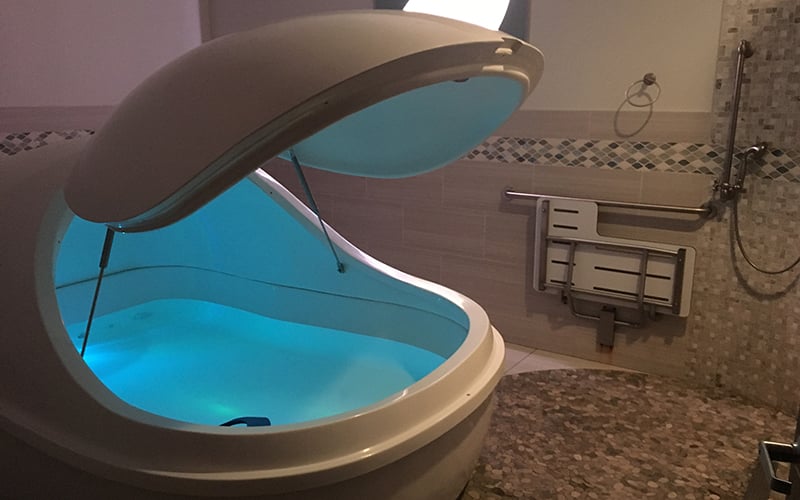
Company officials at True REST Float Spa said epsom salts in their flotation therapy pods, like this one at the company’s Scottsdale location, help clients feel weightless. (Photo by Amanda Luberto/Cronkite News)
SCOTTSDALE – At a flotation therapy center in Scottsdale, clients enter, watch a short video and then enter a flotation pod with more than 1,000 pounds of epsom salts.
Company officials at True REST Float Spa said the epsom salts help clients feel weightless.
“I did it the first time, and I was hooked,” Mike Miorano said after his third visit. “I’m very impressed at the level of the depth of relaxation that you get from this.”
These flotation tanks – also known as isolation or sensory deprivation tanks – have grown in popularity in the last few years. One news release touted it as “one of the fastest growing niche industries in the country,” according to the San Francisco Salt Company.
The Valley has about a half dozen float centers, including several True REST locations. Nick and Holly Janicki opened their first True REST in Scottsdale in 2009, and the company began franchising two years ago. The Tempe-based company now has more than 17 locations nationwide, and a company spokeswoman said they have another 30 under development across the country.
Experts say the treatment has become so popular because it’s a good way to reduce stress.
At least 65 percent of Americans say they feel stress, and that number is on the rise, according to a 2017 report by the American Psychological Association.
Holly Janicki said the epsom salts help release toxins from your muscles and create a zero-gravity feel.
She said the treatment has been “huge” for people suffering from pain.
While some people are still skeptical, Janicki said that each float is different and up to the client.
One report published in an alternative medicine journal indicated that researchers have conducted few studies about the effects of float therapy. However, this study, which included 65 participants, concluded that the therapy decreased stress, depression, anxiety and pain, while increasing sleep among participants.